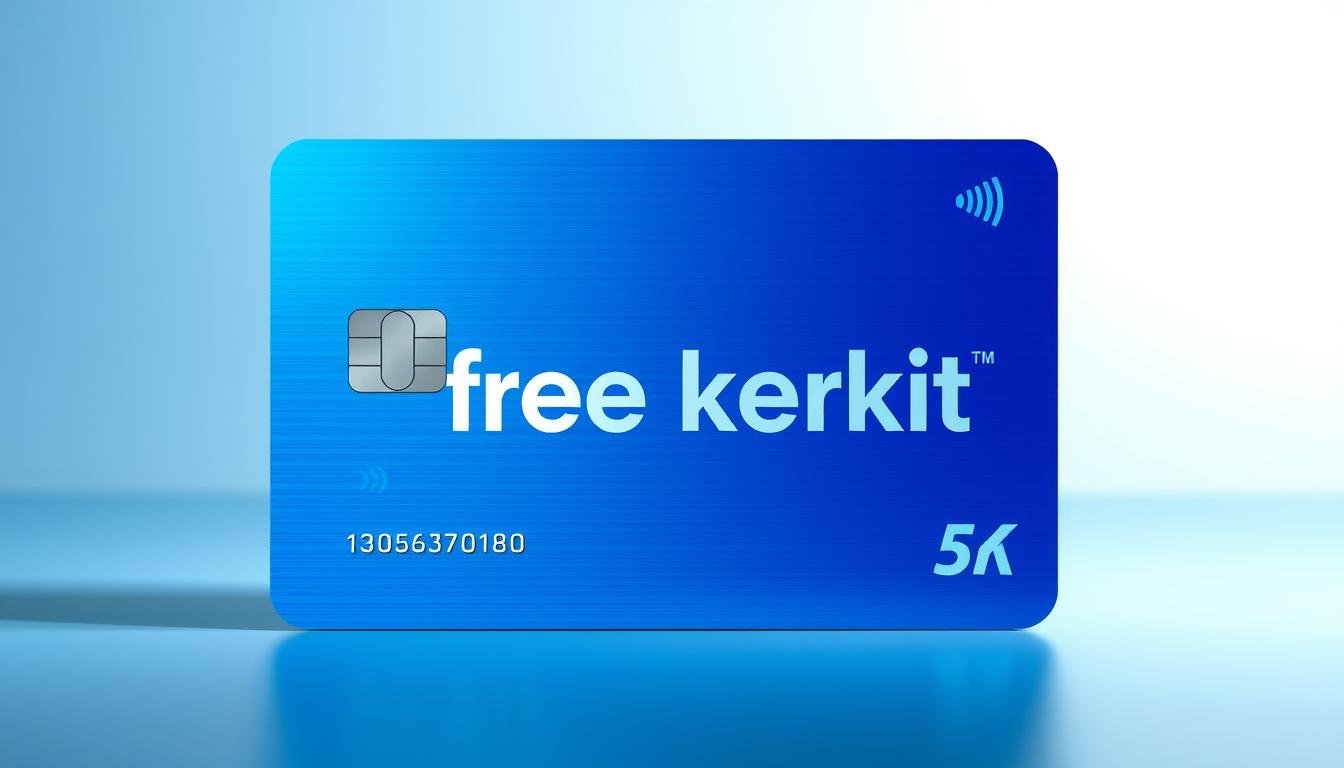In today’s financial landscape, understanding free kredit is crucial for anyone looking to enhance their financial health. A solid credit score opens the door to numerous financial opportunities, such as lower interest rates and easier approvals for loans. By focusing on credit score improvement, you can unlock a wealth of advantages that support your long-term financial goals. This section will set the foundation for understanding the importance of maintaining a healthy credit score while exploring practical steps for effective credit building. Discover how various financial tools can help you achieve that improvement and secure a brighter financial future.
The Importance of a Good Credit Score
A good credit score plays a vital role in determining your financial health. It affects various aspects of your life, from loan approvals to interest rates on credit cards. Understanding the significance of maintaining a high credit score can open doors to numerous financial opportunities and help you secure favorable terms on future borrowing.
How It Affects Your Financial Opportunities
Lenders heavily weigh your credit score when assessing your trustworthiness. A high score can lead to lower interest rates, ultimately saving you money over time. In contrast, individuals with lower scores may face higher costs or limited access to loans. Knowing how your credit scoring impact can affect various aspects of financial life emphasizes the necessity of striving for a good credit score.
Understanding FICO® Score Ranges
The FICO® score ranges typically categorize scores as follows: below 580 is considered poor, 580 to 669 is fair, 670 to 739 is good, while scores of 740 and above are rated excellent. Understanding these ranges allows you to evaluate your creditworthiness and set goals for improvement. Aiming for a good credit score can enhance your chances of obtaining favorable financial products.

What is Free Kredit?
Free kredit represents a smart approach to leveraging credit without incurring additional costs. It refers to credit opportunities available devoid of fees or interest, allowing individuals to enhance their credit profiles effectively. Understanding the free kredit definition is crucial as it empowers users to navigate financial products designed specifically for credit building.
A Definition of Free Kredit
The free kredit definition encompasses various financial products, including credit cards that do not charge annual fees and loans aimed at establishing creditworthiness. These options are structured to support individuals as they embark on their credit-building journey.
How Does Free Kredit Work?
The free kredit mechanism relies on providing accessible means for individuals to build credit history. By offering credit options that don’t require hard inquiries or additional charges, users can confidently engage with financial products designed for positive credit impact. Accessing free credit becomes simpler when options are tailored to encourage responsible credit behavior while fostering financial growth.
Simple Ways to Access Free Credit
Accessing free credit can be easier than you might think. Utilizing no annual fee credit cards is one effective strategy that allows individuals to build their credit without incurring upfront costs. These cards typically offer rewards and benefits that can enhance your financial experience while promoting responsible credit use.
Another helpful method involves using credit-building tools, such as mobile apps designed to help consumers track their credit scores. These apps provide valuable insights, educate users about their credit journeys, and encourage positive financial habits. By combining no annual fee credit cards with these innovative apps, gaining access to free credit becomes a more manageable and less intimidating process.
Credit Building Apps for Your Financial Health
Credit building apps have emerged as effective solutions, offering various services designed to help users improve credit scores. These applications utilize advanced technology to provide credit monitoring, personalized recommendations, and facilitate access to alternative payment data. By integrating these features, credit building apps empower users to take control of their financial futures.
How Do Credit-Building Apps Work?
Most credit building apps function by aggregating data from various sources to analyze an individual’s credit profile. They often report alternative payments, like rent or utility bills, enhancing the user’s credit report. Programs like Self and Grow Credit allow users to make fixed monthly payments that are reported to credit bureaus. This approach effectively helps individuals build a positive credit history, making these tools among the best credit tools available today.
Top Credit-Building Apps Available Today
Several credit building apps stand out in the marketplace. Experian Boost helps users improve credit scores by adding on-time payments for utilities and subscriptions to their credit report. Self offers personal loans structured to help individuals build credit through regular payments. Grow Credit reports subscription services payments to help boost credit scores as well. Each of these applications provides unique features, ensuring users have access to the best credit tools that can enhance their financial health.
Strategies to Boost Your Credit Score
Improving your credit score can open doors to better financial opportunities. Embracing effective credit score strategies can lead to a healthier financial life. Understanding key components such as payment history and credit utilization management is essential for success.
Payment History and Its Significance
Payment history has a significant impact on your overall credit score. Timely payments establish a reliable credit profile, affirming your ability to manage debt responsibly. Skipping even one payment can detrimentally affect your score, making it vital to prioritize this aspect consistently. Regularly reviewing your accounts ensures you stay on track with your payments.
Maintaining Low Credit Utilization
Effective credit utilization management plays a crucial role in enhancing your credit standing. Keeping credit card balances below 30% of your overall limit is advisable. For instance, if you have a credit limit of $1,000, aim to maintain usage under $300. This practice not only boosts your credit score but also reflects financial discipline to lenders.
Managing New Credit Applications
When considering new credit applications, spacing them out is a wise approach. Each application could lead to a hard inquiry, which may temporarily lower your score. By managing the frequency of these applications, you can mitigate the impact on your credit rating, ensuring that your score remains robust over time.
Alternative Methods to Build Credit
Exploring alternative credit methods can open new avenues for improving your credit score. Many individuals may not realize that their regular rental and utility payments can be leveraged as credit. Incorporating these consistent payments can create a more comprehensive picture of financial responsibility.
Utilizing Rental and Utility Payments
Rental payments as credit have become a recognized strategy in recent years. By reporting these payments to credit bureaus, you can positively affect your credit score. Services like Experian Boost allow you to include utility payments, such as gas and electricity, in your credit report. Utilizing these resources can be a game-changer for those with limited credit history.
How Credit-Lending Institutions Can Help
Credit-lending solutions often include small personal loans aimed at building credit. These loans typically report your payment history to major credit bureaus. Regular, timely payments can significantly enhance your credit profile. This approach not only helps you develop a solid credit foundation but also increases your chances for future loans and credit opportunities.
Common Pitfalls to Avoid
Navigating the world of credit can be challenging, especially when you encounter credit pitfalls that may hinder your financial progress. Being aware of hard inquiries and the impact of missed payments is crucial for maintaining a healthy credit score. Understanding these aspects can significantly influence your credit-building journey.
Understanding Hard Inquiries vs. Soft Pulls
Hard inquiries occur when lenders check your credit score as part of their decision-making process for loans or credit cards. Such inquiries can lead to a temporary reduction in your score. In contrast, soft pulls involve background checks that do not affect your credit score. Recognizing the difference between these two can help you manage your credit activities more strategically.
The Impact of Missed Payments on Your Score
Missed payments can significantly damage your credit history. Since payment history plays a critical role in determining your credit score, even small lapses can result in long-term consequences. The missed payments impact is profound, often leading to higher interest rates and limited access to financial opportunities. Keeping track of your payment deadlines remains essential for maintaining a strong credit profile.
Monitoring Your Financial Progress
Keeping track of your credit health is essential for maintaining good financial standing. Regular credit checks help individuals understand their credit status and detect any discrepancies early on. Engaging in consistent credit monitoring allows for timely adjustments to financial strategies and ensures better management of credit resources.
The Importance of Regular Credit Checks
Regular credit checks promote awareness of credit scores and any changes that may occur. They serve as a proactive measure to address issues such as identity theft or unauthorized accounts. Understanding your credit report helps in making informed decisions about loans and interest rates, ultimately fostering improved financial health.
Free vs. Paid Monitoring Services
When considering credit monitoring options, one can choose between free vs paid services. Free services often provide basic credit score tracking and alerts, which are adequate for many users. Paid services delve deeper, offering comprehensive insights and detailed analytics that can enhance financial planning. Weighing the pros and cons of these options is important for choosing what best suits individual needs.
Leveraging SoFi for Financial Growth
SoFi provides innovative solutions tailored to enhance financial health, making it a valuable partner for those seeking to bolster their credit standing. By utilizing services such as soft credit checks, SoFi ensures that users can assess their eligibility for various financial products without affecting their credit scores. This gentle approach allows individuals to explore options while promoting financial growth.
How SoFi Can Help You Access Free Credit
The platform offers an array of resources, including credit score monitoring, which empowers customers to stay informed about their credit standing. This proactive approach not only aids in building awareness but also helps in identifying steps to improve creditworthiness. SoFi’s commitment to accessible financial tools positions it as a dependable ally in navigating the credit landscape.
The Benefits of SoFi’s Member Rewards
Engaging with SoFi unlocks the potential of a member rewards program designed to encourage responsible financial behavior. Users benefit from exclusive offers and incentives that align with their goals. By participating in this program, individuals can enhance their financial literacy while earning rewards, reinforcing a positive cycle of financial growth. SoFi continues to support its members through valuable educational resources, making a meaningful impact on their overall financial health.
Exploring Other Financial Tools and Resources
Access to various financial tools plays a vital role in improving one’s financial literacy and overall health. These resources can help individuals better understand the importance of budgeting and its impact on achieving long-term financial goals. Enhancing financial education equips individuals with the necessary skills to effectively manage money and make informed decisions.
Financial Education for Long-term Growth
Engaging in financial education is essential for anyone aiming for sustainable growth. It involves understanding key concepts of managing finances, saving, and investing. Utilizing online courses, webinars, and financial literacy workshops provides valuable insights into personal finance management. These educational resources empower individuals to build a more secure financial future.
The Role of Budgeting in Financial Health
Budgeting serves as a cornerstone of effective financial management. By creating a detailed budget, individuals can allocate their earnings wisely, manage their expenses, and set aside money for future needs. Various budgeting applications offer practical tools to track spending and savings. Such applications not only simplify budgeting tasks but also contribute significantly to a person’s financial well-being.
Conclusion
In summary, the journey toward achieving financial health and improving your credit management skills revolves around a solid understanding of credit dynamics and the utilization of strategic tools. Embracing concepts like free kredit not only provides a pathway to better credit options but also enhances your overall financial landscape.
By integrating the strategies outlined in this article—such as utilizing credit-building apps and maintaining a proactive approach to managing your credit—you can unlock various financial opportunities. Consistent application of these practices facilitates significant personal finance improvement over time, leading to a more stable and prosperous future.
Ultimately, financial health is within reach for anyone willing to engage with their credit journey. With the right resources and habits, you can build a strong financial foundation that opens doors to new possibilities and growth.




